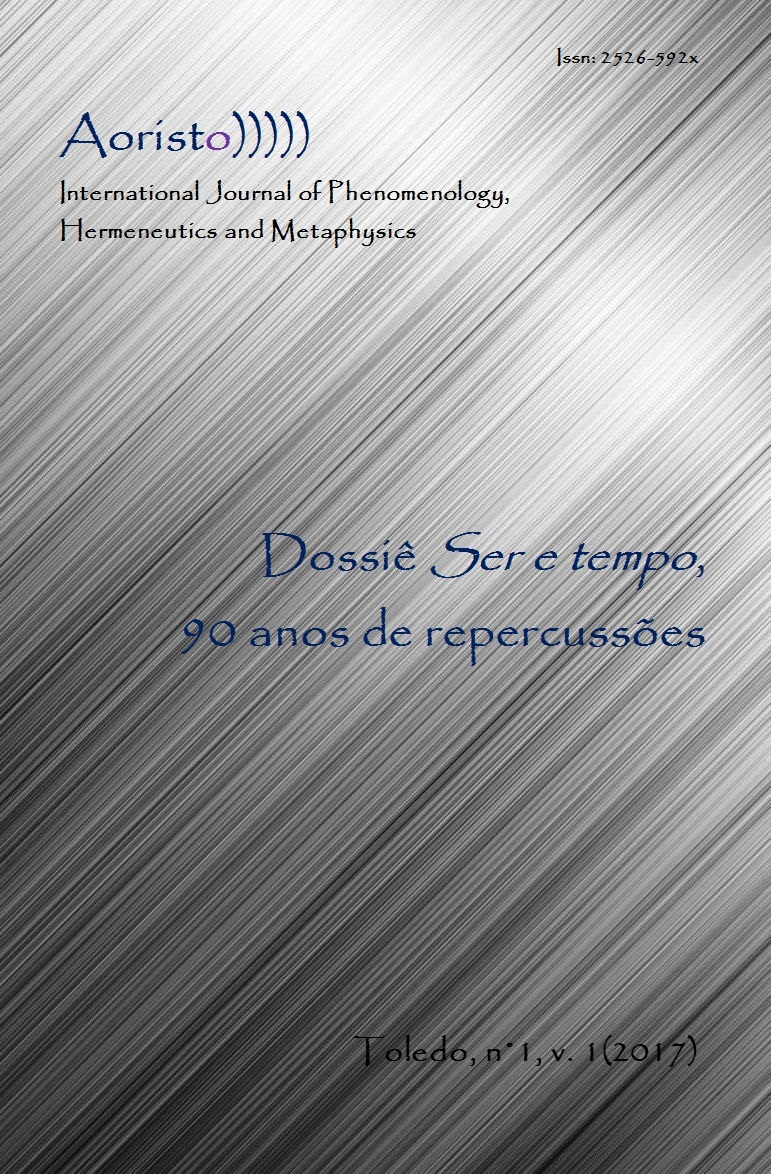Possibilidade e interesse:
acerca do entediar-se em Kierkegaard
DOI:
https://doi.org/10.48075/aoristo.v1i1.16533Palabras clave:
Tédio, Possibilidade, Kierkegaard, Interesse, Clínica PsicológicaResumen
Nosso objetivo neste texto é buscar elementos para compreender o fenômeno do tédio no interior do pensamento de Kierkegaard. A motivação para essa investigação nos vem de discursos cada vez mais presentes na clínica psicológica que denunciam uma crescente indisposição para agir no mundo. A importância desse trabalho está em nos alertar para a diversidade de sentidos que um ato traz consigo, de forma a nos resguardar da sedução de nos entregarmos a uma compreensão mais superficial. Tal exercício é de fundamental importância para o aprimoramento da escuta clínica. Tomaremos algumas figuras ou personagens de Kierkegaard que dão voz a diferentes modalidades do tédio em textos que se encontram no interior dos dois volumes da obra Ou-ou. Serão eles: Diapsalmata; Os estádios eróticos imediatos ou o erótico musical; A Rotação das culturas; Diário do sedutor e O equilíbrio entre o estético e o ético na formação da personalidade. Como referência para nossas reflexões, recorreremos aos textos de Nuno Ferro (Kierkegaard e o tédio) e de Fogel (Sobre homem e realidade). Fogel diz que homem, vida, realidade devem ser compreendidos como possibilidade para a possibilidade, como variações, modos diferentes de ser e de se dispor nesta realidade. Ferro mostrará que o entediado está inerte diante das possibilidades. As possibilidades estão desvitalizadas, de modo que não aparecem para ele como um possível real, nem mesmo imaginativamente.
Descargas
Publicado
Cómo citar
Número
Sección
Licencia

Esta obra está bajo una licencia internacional Creative Commons Atribución-NoComercial-SinDerivadas 4.0.
Copyright Notice
1. I grant the AORISTO – International Journal of Phenomenology, Hermeneutics and Metaphysics the first publication of my article, licensed under Creative Commons Attribution (which allows sharing of work, recognition of authorship and initial publication in this journal).
2. I confirm that my article is not being submitted to another publication and has not been published in its entirely on another journal. I take full responsibility for its originality and I will also claim responsibility for charges from claims by third parties concerning the authorship of the article.
3. I also agree that the manuscript will be submitted according to the Aoristo’s publication rules described above.
License Creative Commons
This work is licensed under a Creative Commons Atribuição-NãoComercial-CompartilhaIgual 4.0 Internacional, which allows you to share, copy, distribute, display, reproduce, in whole or in part, for as long as there is no commercial purpose, and authors and source are cited.


